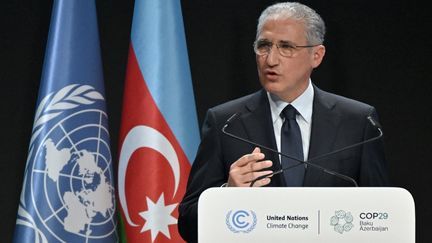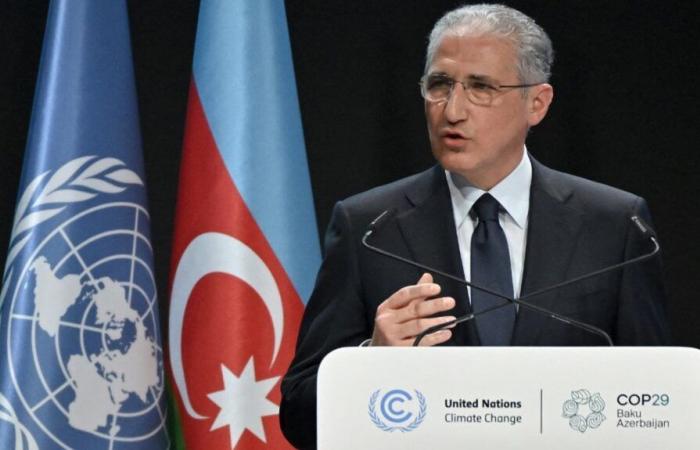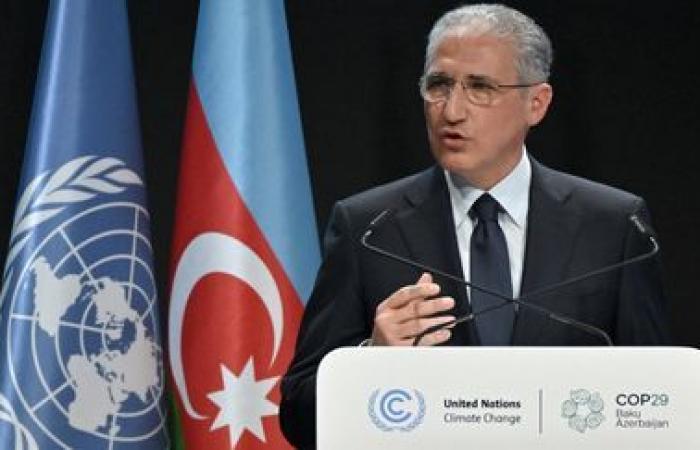The presidency had proposed setting the contribution of developed countries at $250 billion per year, but this proposal was rejected by the African group and criticized by NGOs.
Published on 22/11/2024 13:16
Updated on 22/11/2024 16:10
Reading time: 3min

Twelfth and final official day of negotiations, and still no compromise. The UN climate change conference in Baku, Azerbaijan, officially went into overtime on Friday, November 22 at 6 p.m. (3 p.m. in Paris). Negotiators from nearly 200 countries disagree on the new climate finance target that developed countries will have to provide over the next decade to developing countries.
A few hours earlier, the Azerbaijani presidency of COP29 had proposed setting the contribution of developed countries to climate finance for developing countries at $250 billion per year by 2035. In two weeks of negotiations, this was the first time that a figure was formally proposed at the summit. This figure reflected the demand of developed countries, clarified the presidency of COP29.
But this amount was quickly rejected by several parties. “The proposal” made by developed countries “to provide 250 billion dollars per year by 2035 is completely unacceptable and unsuitable for implementing the Paris agreement”immediately reacted the president of the African group at COP29, the Kenyan negotiator Ali Mohamed. “The world is burning, we can't wait for peanuts”for her part castigated Friederike Roder, of the NGO Global Citizen.
Consequently, the presidency of COP29 assured that it was working towards a more objective “fair and ambitious”. “We will of course continue to discuss with the parties,” declared Azerbaijani chief negotiator Yalchin Rafiev promising to do “final adjustments”. Since the start of negotiations, different amounts have been requested by developing countries, notably “at least 500 billions of dollars per year from a group comprising 134 countries, including China.
Climate finance money is used by poor countries to invest in low-carbon energy and adapt their economies to a more destructive climate, for example by investing in irrigation or adapting cities to more frequent flooding.
The European Union, the world's largest contributor to climate finance, has not publicly revealed the amount it is prepared to commit to. In return, it requires progress in other areas, in particular in continuing action to reduce greenhouse gas emissions, which meets resistance from the Arab group which opposes any targeting of fossil fuels. .
France
World








